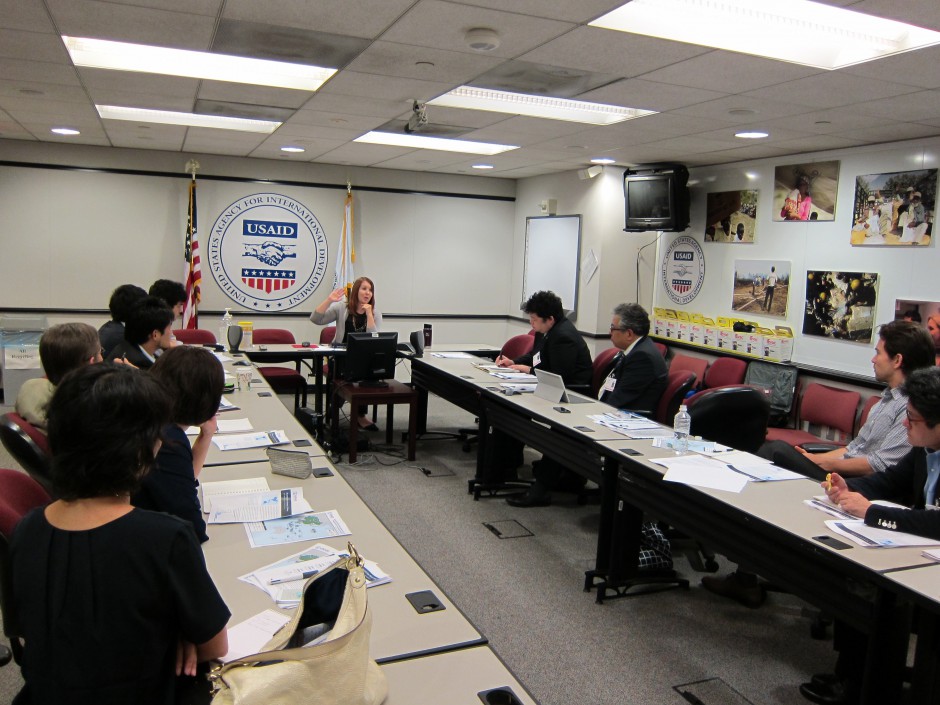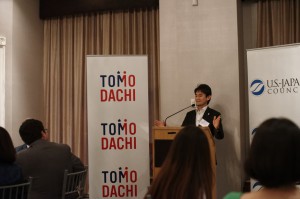Japanese NGO Leaders Return to Japan After Participating in the 2015 InterAction Forum Study Tour supported by J.P. Morgan

Ten Japanese delegates visited Washington, D.C. from June 21-28, 2015 to participate in the InterAction Forum Study Tour of the TOMODACHI NGO Leadership Program supported by J.P. Morgan. In it’s third year, this program consists of short-term exchanges and workshops promoting idea exchange and practical training to Japanese NGO leaders and provides an opportunity for the participants to think about the roles of Japanese NGOs in the world. At the three-day annual InterAction Forum, the delegates learned about enhancing partnerships between all stakeholders to develop effective programs, policies, and mutually-beneficial solutions to alleviate poverty and advance equality and sustainability around the world. The ideas gained by the delegates were then shared at a dinner hosted by the U.S.-Japan Council (USJC) on June 25, in which representatives from the Embassy of Japan, the U.S. Department of State, local USJC members, and notable NGO leaders attended.
 One of the key points that the delegates spoke about was a newfound appreciation for the role of cross-cultural differences in NGO development, and a sense of urgency to apply this new understanding to their work in Japan.
One of the key points that the delegates spoke about was a newfound appreciation for the role of cross-cultural differences in NGO development, and a sense of urgency to apply this new understanding to their work in Japan.
“Advocacy and program implementing are categorized as separate entities in the Japanese NGO world,” Atsushi Suhara, program manager at the Adventist Development and Relief Agency Japan (ADRA Japan), said. “American NGOs manage to do advocacy and program implementing simultaneously. Healthy communication between the government and NGOs is necessary.”
Mariko Poorman of Peace Winds Japan stated, “It is so important to take this experience back to Japan to strengthen NGO capacity and understand that NGO systems in Japan can work.”
Mr. Joe Young, Director of the Office of Japan Affairs at the U.S. State Department, said that the U.S.-Japan relationship is now more crucial than ever, and that this program is building on the existing framework of U.S.-Japan bilateral ties through the lens of humanitarian aid.
Many of the Japanese delegates have worked with emergency disaster relief efforts abroad, but recognize the lack of a concrete foundation in Japan. Nobuhisa Iida, delegation leader and Secretary General of Japan Platform, pointed this out as an area of improvement. “Today, Japan Platform has 47 NGOs operating in Southeast Asia, Africa, and Japan,” Mr. Iida said. “But, as you know, the NGO presence in Japan is not so big. We would like to come up with many more projects in this area.”


